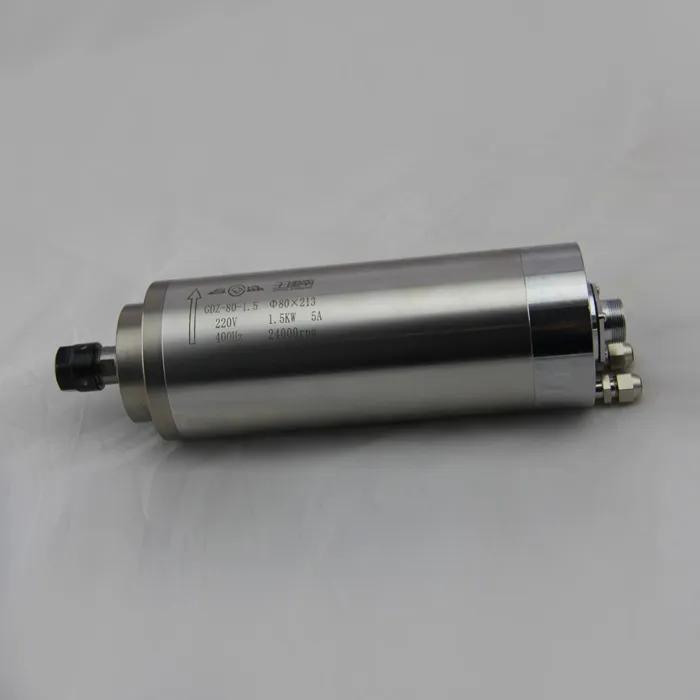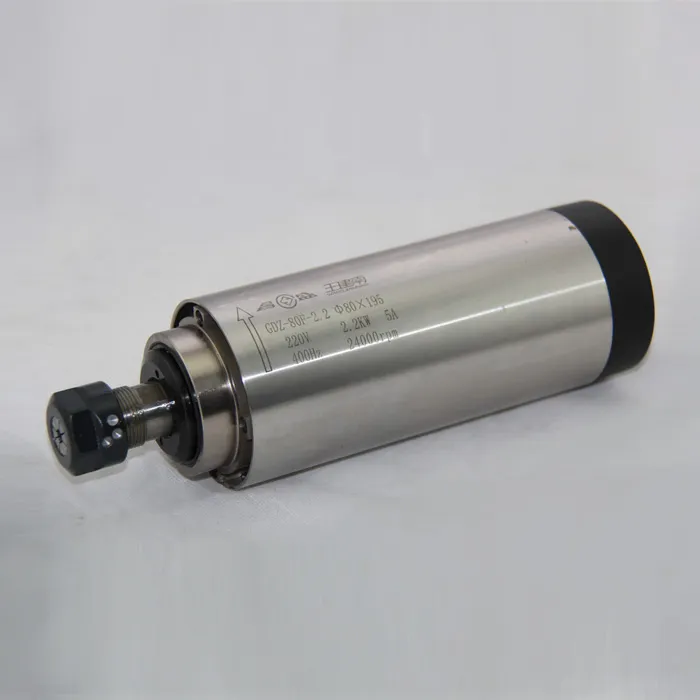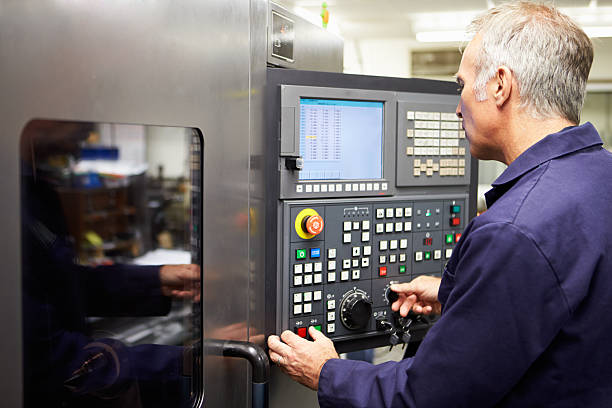Finding the right CNC operator is crucial for any manufacturing business that aims to produce high-quality parts efficiently. Whether you run a small CNC shop or a larger industrial facility, the success of your operation largely depends on having skilled personnel who can effectively set up, program, and run CNC machines. But how exactly do you find the right CNC operator, and what qualities should you look for? This comprehensive guide will answer all your questions about how to hire a CNC operator, covering everything from the essential skills required to the best places to find top talent.
Understanding the Role of a CNC Operator
What is a CNC Operator?
A CNC operator is responsible for the setup, operation, and maintenance of CNC machines, which are used to produce parts with high precision from materials such as metal, plastic, or wood. Unlike a CNC machinist, who may also handle programming, the primary focus of a CNC operator is to make sure that the machine runs smoothly throughout its operation.
Key Responsibilities of a CNC Operator
The tasks of a CNC operator can vary based on the specific type of CNC machine they work with, but generally include:
- Machine Setup: Installing the tools, loading the materials, and configuring the machine settings.
- Operating the Machine: Monitoring the machine during operation to ensure that parts are produced accurately.
- Quality Control: Checking the quality of finished parts to ensure they meet the required specifications.
- Basic Maintenance: Performing regular maintenance to keep the CNC machine in optimal working condition.
Skills Required for a CNC Operator
Hiring the right CNC operator means finding someone with the appropriate set of skills. Key skills to look for include:
- Mechanical Aptitude: Understanding the fundamental working of CNC machines.
- Attention to Detail: Ensuring precision in the production process.
- Basic Programming Knowledge: Familiarity with G-code or M-code can be beneficial.
- Problem-Solving: Ability to troubleshoot issues that arise during machine operation.
Where to Find CNC Operators
1. Technical Schools and Community Colleges
Many technical schools and community colleges offer CNC training programs that produce well-qualified operators. Establishing relationships with these institutions can give you access to recent graduates who are looking for jobs in CNC machining.
2. Online Job Boards and Recruitment Websites
Job boards such as Indeed, LinkedIn, and Glassdoor are good places to post openings for CNC operators. Make sure that your job description is detailed enough to attract the right kind of candidates.
3. Industry-Specific Forums and Websites
Industry-specific platforms like Practical Machinist often have job boards and communities where machinists and operators look for employment opportunities. Posting on these forums can help you target candidates who are already immersed in the CNC field.
4. Recruitment Agencies Specializing in Manufacturing
Consider partnering with recruitment agencies that specialize in the manufacturing industry. These agencies often have access to a large pool of experienced operators and can streamline the hiring process.

To ensure your CNC machines run at their best, invest in high-quality equipment like the 24000RPM 1.5KW ER16 Water-Cooled Spindle, which enhances precision and performance.
Writing an Effective Job Description
An effective job description can make all the difference in attracting the right candidates for your CNC operator position. Here’s what to include:
1. Job Title
Use a specific and descriptive job title, such as CNC Operator for Lathe and Milling Operations. This will help filter candidates who have the right set of skills.
2. Job Summary
Provide a concise overview of the position. Highlight what type of CNC machines the operator will work on and what products they will help produce. For example:
“We are seeking a CNC Operator to join our precision manufacturing team. The role involves setting up and operating CNC lathe and milling machines to produce high-quality components for the aerospace industry.”
3. Responsibilities
Clearly outline the tasks that the operator will be responsible for:
- Setting up CNC machines with appropriate tools and materials.
- Monitoring machine performance and quality of output.
- Conducting routine quality checks on finished parts.
- Performing basic machine maintenance.
4. Qualifications
Specify the qualifications required:
- Experience: At least 1-2 years of experience as a CNC operator.
- Education: A diploma or certification in Machining Technology is preferred.
- Skills: Ability to read blueprints and basic knowledge of CNC programming.
5. Benefits
Highlight the benefits of the job to make it more attractive:
- Competitive Salary: $18-$25 per hour depending on experience.
- Health Insurance: Comprehensive health and dental coverage.
- Paid Time Off: Vacation and sick leave.
Screening and Interview Process for CNC Operators
1. Resume Screening
The first step in finding the right CNC operator is to screen resumes for the relevant skills and experience. Look for candidates who have experience with similar types of CNC machines, as well as familiarity with tooling and basic machine programming.
2. Skill Assessment
Conduct a hands-on skills test to determine the candidate’s familiarity with CNC machines. This could include setting up a machine, running a simple program, and performing a quality check on the finished product.
3. Behavioral Interview Questions
In addition to technical skills, a good CNC operator needs to be reliable and able to work well under pressure. Behavioral questions can help assess these traits. For example:
- Describe a time when you had to troubleshoot a problem with a CNC machine. What was the issue, and how did you solve it?
- How do you ensure that you maintain the quality of the parts produced during long production runs?
4. Checking References
Before making a job offer, check the candidate’s references, especially those from previous positions in the manufacturing industry. This will give you insights into their reliability and work ethic.
Qualities of a Good CNC Operator
A successful CNC operator should possess a mix of technical skills and personal attributes that make them suitable for the role:
1. Technical Proficiency
A CNC operator must be comfortable with machine setup, tool changes, and running different CNC programs. Experience with specific machines like CNC routers or lathes is often necessary depending on your shop’s requirements.
2. Attention to Detail
Since CNC machining requires high levels of precision, attention to detail is crucial. The operator should be capable of detecting small errors in setup or machine output.
3. Reliability and Punctuality
Reliability is key in a manufacturing environment where every second counts. A good CNC operator should be dependable, ensuring that production schedules are met without compromising on quality.

For improved machine efficiency, consider our 2.2KW ER20 Air-Cooled Spindle, which provides exceptional stability during extended operations.
Training and Development for CNC Operators
Once you’ve hired a CNC operator, investing in their training and development is crucial to keep them up to date with the latest technologies and methods in CNC machining. Here are some ways to enhance their skills:
1. On-the-Job Training
Provide new hires with on-the-job training that includes hands-on experience with the CNC machines they’ll be working on. This helps them become familiar with your specific production processes and equipment.
2. CNC Programming Courses
Encourage operators to take courses in CNC programming. While they may not need to write programs from scratch, understanding the code helps them better troubleshoot issues that arise during operation.
3. Safety Training
Safety is a major aspect of CNC operations. Operators should be trained on all safety protocols, including the correct use of personal protective equipment (PPE) and safe handling of tools and materials.
Offering Competitive Compensation
Average Pay for CNC Operators
The average hourly wage for CNC operators in the United States is between $18 and $25, depending on experience and location. Offering competitive pay is crucial for attracting the best talent.
Benefits to Attract CNC Operators
To make the position more appealing, offer additional benefits such as:
- Health Insurance
- 401(k) Retirement Plans
- Overtime Opportunities
Bonuses for Performance
Offering performance-based bonuses can be a great way to motivate CNC operators. Bonuses based on output quality, meeting production deadlines, and minimizing machine downtime can incentivize employees to maintain high standards.
FAQs
1. Where is the best place to find CNC operators?
You can find CNC operators through online job boards, technical schools, industry forums, and recruitment agencies specializing in manufacturing.
2. What qualifications should I look for in a CNC operator?
Look for candidates with 1-2 years of experience, familiarity with G-code, and the ability to read technical blueprints. Certifications in machining are also beneficial.
3. How much does a CNC operator make on average?
The average hourly wage for a CNC operator is between $18 and $25, depending on their experience, location, and the complexity of the job.
4. What are some key responsibilities of a CNC operator?
A CNC operator is responsible for setting up machines, running CNC programs, performing quality checks, and conducting basic maintenance.
5. How can I retain skilled CNC operators?
Offering competitive pay, benefits, and training opportunities are effective ways to retain skilled CNC operators. Performance-based incentives also help in retaining top talent.
Conclusion
Hiring the right CNC operator is essential for ensuring smooth and efficient production in any CNC machining environment. By understanding the key responsibilities of the role, knowing where to find top talent, and offering a competitive compensation package, you can attract and retain skilled operators who will add significant value to your business. Investing in their training and development further ensures that they stay updated with the latest techniques and safety protocols, making your operation more productive and efficient.
Whether you’re just starting to build your CNC team or looking to expand, having the right CNC operator is key to maintaining quality and efficiency in your production processes. Don’t forget to consider investing in high-quality machine components like our 2.2KW ER20 Air-Cooled Spindle to support your operators in achieving the best results.

